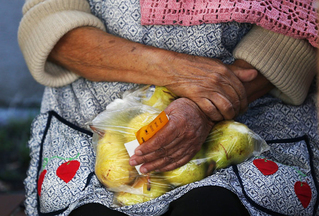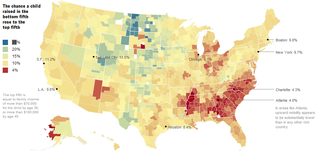Resources
Association of Academic Health Centers: Social Determinants of Health Toolkit for Collaboration. http://wherehealthbegins.org/
Bay Area Regional Health Inequities Initiative (BARHII) http://barhii.org/
Centers for Disease Control-Social Determinants of Health http://www.cdc.gov/socialdeterminants
Institute of Medicine [Presentation graphs]. Woolf SH, Aron LY. The US Health Disadvantage Relative to Other High-Income Countries: Findings From a National Research Council/Institute of Medicine Report. JAMA. 2013;309(8):771-772. doi:10.1001/jama.2013.91.
¡Milwaukee Evaluation! Using a Racial Equity Lens to Guide Program Evaluation: Racism & Evaluation
http://www.evaluation.wildapricot.org/
National Association of City and County Health Officials (NACCHO)—Roots of Health Inequity online course: http://rootsofhealthinequity.org/
Policy Link: www.policylink.org
Robert Wood Johnson Foundation-Social Determinants of Health http://www.rwjf.org/en/topics/search-topics/S/social-determinants-of-health.html
Unnatural Causes: www.unnaturalcauses.org
Health Begins: Making “Upstreamists”: Healthcare professionals and innovators equipped to transform care and the social and environmental conditions that make people sick. www.healthbegins.org
UW Madison Population Health Institute: http://uwphi.pophealth.wisc.edu/
Wisconsin Center for Health Equity: www.wche.org
Wisconsin Population Health Fellows Blog: http://wipophealthfellows.blogspot.com/
World Health Organization Commission on Social Determinants of Health: www.who.int/social_determinants
Bay Area Regional Health Inequities Initiative (BARHII) http://barhii.org/
Centers for Disease Control-Social Determinants of Health http://www.cdc.gov/socialdeterminants
Institute of Medicine [Presentation graphs]. Woolf SH, Aron LY. The US Health Disadvantage Relative to Other High-Income Countries: Findings From a National Research Council/Institute of Medicine Report. JAMA. 2013;309(8):771-772. doi:10.1001/jama.2013.91.
¡Milwaukee Evaluation! Using a Racial Equity Lens to Guide Program Evaluation: Racism & Evaluation
http://www.evaluation.wildapricot.org/
National Association of City and County Health Officials (NACCHO)—Roots of Health Inequity online course: http://rootsofhealthinequity.org/
Policy Link: www.policylink.org
Robert Wood Johnson Foundation-Social Determinants of Health http://www.rwjf.org/en/topics/search-topics/S/social-determinants-of-health.html
Unnatural Causes: www.unnaturalcauses.org
Health Begins: Making “Upstreamists”: Healthcare professionals and innovators equipped to transform care and the social and environmental conditions that make people sick. www.healthbegins.org
UW Madison Population Health Institute: http://uwphi.pophealth.wisc.edu/
Wisconsin Center for Health Equity: www.wche.org
Wisconsin Population Health Fellows Blog: http://wipophealthfellows.blogspot.com/
World Health Organization Commission on Social Determinants of Health: www.who.int/social_determinants
Resources Related to Health Equity Topic Areas
INCOME
Income, Wealth and Health Robert Wood Johnson Foundation
The Influence of Income on Health: Views of an Epidemiologist Michael Marmot
Economic Policy Institute
The Influence of Income on Health: Views of an Epidemiologist Michael Marmot
Economic Policy Institute
Employment
Stable Jobs=Healthier Lives. Robert Wood Johnson Foundation.
Education
Better Education=Healthier Lives. Robert Wood Johnson Foundation.
Giving Everyone the Health of the Educated: An Examination of Whether Social Change Would Save
More Lives Than Medical Advances. Woolf S, et al.
Giving Everyone the Health of the Educated: An Examination of Whether Social Change Would Save
More Lives Than Medical Advances. Woolf S, et al.
Housing
Centers for Disease Control--Public Health and Homelessness Podcast
Center for Responsible Lending
National AIDS Housing Coalition
National Community Reinvestment Coalition
National Fair Housing Advocate Online
National Fair Housing Alliance
National Health Care for the Homeless Council
Robert Wood Johnson Foundation--Commission to Build a Healthier America
US Department of Housing and Urban Development
World Health Organization--International Workshop on Housing, Health and Climate Change.
Fair Housing Center of Greater Madison
Fair Housing Center of North East Wisconsin
Metropolitan Milwaukee Fair Housing Council
Wisconsin Coalition for Advocacy (Disability Rights Wisconsin)
Wisconsin Housing and Economic Development Authority
Center for Responsible Lending
National AIDS Housing Coalition
National Community Reinvestment Coalition
National Fair Housing Advocate Online
National Fair Housing Alliance
National Health Care for the Homeless Council
Robert Wood Johnson Foundation--Commission to Build a Healthier America
US Department of Housing and Urban Development
World Health Organization--International Workshop on Housing, Health and Climate Change.
Fair Housing Center of Greater Madison
Fair Housing Center of North East Wisconsin
Metropolitan Milwaukee Fair Housing Council
Wisconsin Coalition for Advocacy (Disability Rights Wisconsin)
Wisconsin Housing and Economic Development Authority
Health Equity Related TEDx Talks
Health Equity Related News
Why America is losing the health race
june 2014-the new yorker
Self-interest may be a natural human trait, but when it comes to public health other countries are showing the U.S. that what appears at first to be an altruistic concern for the health and care of the most vulnerable—especially children—may well result in improved health for all members of a society, including the affluent. Until Americans find their way to understanding this dynamic, and figure out how to mobilize public opinion in its favor, they will all continue to lose out on better health and longer lives. Read more
Minnesota department of health releases health equity report to legislature
february 2014
Read here
Who belongs to the lower middle class and why does it matter?
december 2013-The new yorker

In recent years, the cultural conversation about inequality has focussed on the rich and poor themselves...but the problem is structural. Over time, we have set up an economic system that breeds inequality. The good news is that the U.S. and many other countries also employ a system, called democracy, in which everyone—the ninety-nine per cent and the one per cent together—can demand that the government work to fix the problem. Read more
The social science behind obama's economic mobility speech
december 2013-the atlantic
In a speech Wednesday, President Obama sought to move past the old race-based discourse on poverty to an understanding of class stasis as a problem that transcends race. Though he's winning praise for strategic smarts, it's not just a political move: The underlying reality of American life really has changed, and certain socioeconomic experiences now transcend race, according to research from the Saguaro Seminar at Harvard's Kennedy School. Read more
The Lasting Impacts of Poverty on the brain
October 2013-The atlantic
That finding offered a glimpse of what poverty does to a person during a moment in time. Picture a mother trying to accomplish a single task (making dinner) while preoccupied with another (paying the rent on time). But scientists also suspect that poverty's disadvantages – and these moments – accumulate across time. Live in poverty for years, or even generations, and its effects grow more insidious. Live in poverty as a child, and it affects you as an adult, too. Read more
How poverty taxes the brain
august 2013-the atlantic
Researchers publishing some groundbreaking findings today in the journalScience have concluded that poverty imposes such a massive cognitive load on the poor that they have little bandwidth left over to do many of the things that might lift them out of poverty – like go to night school, or search for a new job, or even remember to pay bills on time. Read more.
Stress and Status
|
In climbing income ladder, location matters
|
Milwaukee poverty rates revealed.
June 2013-Milwaukee journal sentinel
About 35% of the workforce in the city of Milwaukee earn "poverty level wages," according to a report released June 2013 by the Center on Wisconsin Strategy. Read more
Unemployment is killing America's economically vulnerable women early.
May 2013-the guardian
Americans are living longer than ever but average lifespan of white, female high school drop-outs has plunged dramatically. Read more
Who lives longest?
march 2013-New york times
Researchers note: “Look at the countries with the highest average life expectancy...nations that distribute their health resources more evenly." Read more
Follow these links to learn more about what we do:


